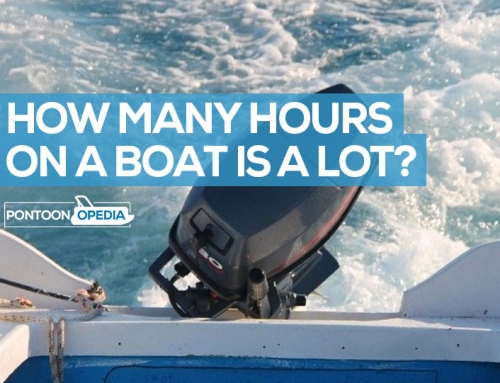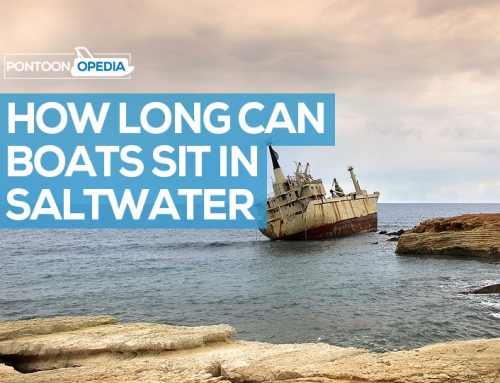Are you the anxious type? Do you worry about death? Do you feel so sick after going on a boat, that you feel you could die? Perhaps you suffer from such severe motion sickness, that it’s stopping you from going on a boat? Well, I’ve got some good news for you…
Can you die from seasickness?
I don’t mean to be-little your thoughts, as health anxiety is more common that you might think, and I’ve suffered with it in the past. Here’s the answer to your question.
No, seasickness will not kill you; you cannot die from seasickness itself. However, when you have severe seasickness you become dehydrated. Dehydration is extremely dangerous and can be fatal. A person with severe seasickness needs plenty or water, and possible medical attention to help get rehydrated.
Why it might feel like you are going to die
When you get seasickness really bad, it can be extremely debilitating. You can start to exhibit any of the following symptoms:
- Dizziness
- Sweating
- Nausea
- Vomiting
- Headaches
- Fatigue
- Pale skin
- Increased saliva
The fatal dangers of seasickness on a boat
Boats are very dangerous. Feeling like this in a high-risk situation will often feel far worse than it might do if you are on solid land.
You might feel the seasickness is going to kill you, but actually it won’t. The feeling of nausea isn’t life threatening, it’s the sea and dehydration that you should be concerned about.
The motion of the boat is unlikely to stop, so your seasickness is not going to get any better until you get back onto dry land.
Plus, feeling this way at sea can lead to life-threatening results; particularly if you are the person meant to be in control, or are a passenger in a smaller boat where risks are more at play.
You need to get back to land in very severe cases so you can start to get better.
To conclude on this aspect, those who have severe seasickness will not die from it. However, if extremely ill, they won’t be able to hold down water and then become at risk from dehydration which can be the killer.
How to prevent dehydration after seasickness
As I’ve established, the main dangers with seasickness isn’t the nausea itself, but the knock-on effects that dehydration can have on the human body.
If you do get severely seasick, make sure that the boat you’re on can get to land and seek medical help quickly, before the dehydration gets too bad.
Ways in which you can rehydrate yourself whilst on the boat, or once you get back to shore include:
- Drink plenty of water, including sugary fluids.
- If you are being sick and keep bringing it back up, try smaller amounts.
- Babies and young children should not be given large volumes of water.
If dehydration is not treated quickly and effectively, it can lead to death. So, whilst you can’t die from seasickness itself, you can die from the after effects in extreme cases.
For expert medical advice, please visit a website such as the UK’s NHS resource on dehydration.
Has anyone ever died from sea sickness?
In 2001, the Daily Telegraph newspaper in the UK reported that a woman with diabetes died during a sailing expedition to Antarctica. The news report stated that her death was a result of being severely seasick, so I wanted to look into this in a little more depth.

The Telegraph reported in 2001 of a woman who died as a result of seasickness.
Was this death a direct result of her being seasick?
Well, here’s the thing. She was a diabetic, and the coroner told the inquest that the actual cause of death was due to a suspected hypoglycaemic coma, as a result of low blood sugar levels.
She became severely ill after a bout of seasickness. As the illness got worse, she got weaker and weaker, as she was unable to keep food and drink down. That meant she could not get the sugars and fluids in her that she needed to function healthily.
The crew called for help, and doctors advised them to administer insulin to the woman to make her health improve. The insulin on board the boat did not work, and she slipped into a coma that she was unable to recover from.
By all accounts, the boat she was on was 150 miles north of Antarctica, with no medical professionals anywhere nearby, and no chances of getting to shore to seek expert help.
What I can take from this, is firstly how tragic the situation was.
But, did the seasickness kill her?
No, but the symptoms she exhibited due to being seasick did. Combined with her pre-existing diabetes condition, and the lack of medical support she ended up dying.
The last word…
When I was a kid, I used to get terrible seasickness after travelling on my father’s deck boat. I remember being so ill once, that I asked my father if you can die from seasickness.
He laughed it off, and convinced me that, no seasickness cannot kill you.
What he did say though, was that a person who is really seasick on a boat will put themselves at risk of death.
I remember him telling me that you can feel sick, lose all co-ordination, and then possibly fall overboard, hit your head, or even possibly overdose on motion sickness tablets.
Whilst that sounds extreme, I think there is some validity to what he told me.
So, can seasickness kill you? It would appear not.
However, the in very extreme cases, the knock-on effects of being dehydrated from severe seasickness can indeed be fatal.
The next time someone asks you “can you die from seasickness”, just like I asked my father all those years ago, you now know the answer.






